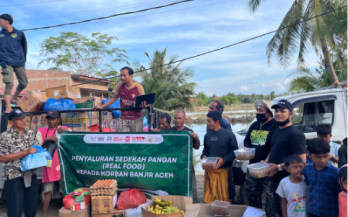

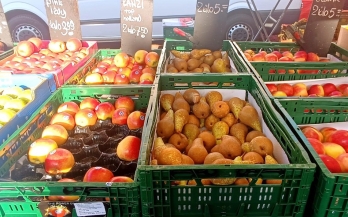
GAIN Convening Paper n°22: Shared Learning, Inspired Action: Insights From Global Exchanges on Strengthening Urban Food Markets
- 13/02/2026
To strengthen evidence and practice about local fresh food markets and food systems governance, in 2025, ICLEI CityFood, the Global Alliance for Improved Nutrition (GAIN), and World Farmers Markets Coalition published two editions of a handbook about markets and resilient cities. The second edition comprises 31 city-market case studies and is structured around the CityFood Market Action Framework. Between May and December 2025, following the launch of the first edition, ICLEI CityFood and GAIN co-convened eight online sessions of a Community of Interest focused on markets and cities. The sessions were structured around four thematic areas: an introduction to how cities shape food markets; gender and social intersectionality; managing food waste; and access to nutrition. Across all eight sessions, a total of 327 participants from 27 cities and 56 organisations took part. This paper shares a summary of those prior sessions and signposts upcoming sessions
GAIN Working Paper n°62: Alternative Sources to Improve Sustainability and Resilience of Tempeh Supply Chains
- 13/02/2026
Tempeh is a popular traditional plant-based protein that plays a vital role in Indonesian diets. Indonesia’s reliance on imported soybeans (2.6 million tons/year) for tempeh production, however, creates market instability and food vulnerabilities, particularly regarding cost and supply fluctuations. This paper analyses the technical, economic, and market feasibility of alternative legumes—specifically, jack beans, mung beans, and peanuts—as sustainable substitutes for soybeans in tempeh production. The aim is to identify the most viable option for immediate scale-up to support local food systems and improve nutritional outcomes.
GAIN Working Paper n°61: Small fish: An Untapped Opportunity for Improving Nutrition
- 06/02/2026
Fish offer a potentially sustainable solution to food security and nutrition challenges in Indonesia. Despite abundant aquatic resources, per capita fish consumption remains lower than in neighbouring countries. Factors such as overfishing, pollution, and unsustainable aquaculture practices limit growth, while climate change poses additional threats to fish stocks.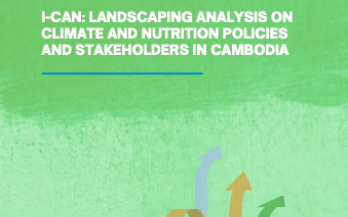
I-CAN: Landscaping analysis on climate and nutrition policies and stakeholders in Cambodia
- 06/02/2026
This report summarizes key findings from the policy landscaping and stakeholder mapping analyses in Cambodia and provides recommendations to strengthen policy integration under the Initiative on Climate Action and Nutrition (I-CAN).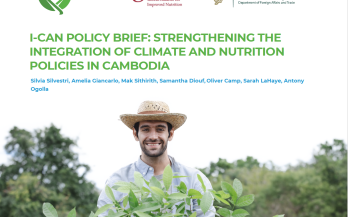
I-CAN Policy Brief: Strengthening the integration of climate and nutrition policies in Cambodia
- 06/02/2026
Cambodia faces urgent challenges at the intersection of climate change and nutrition: rising climate risks threaten food systems and nutrition outcomes, particularly for vulnerable rural communities. This policy brief presents findings from a 2025 light-touch assessment involving 32 policies and key stakeholder interviews.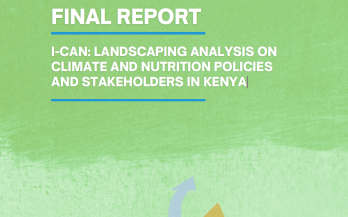
I-CAN: Landscaping analysis on climate and nutrition policies and stakeholders in Kenya
- 06/02/2026
This report summarizes the key findings from the Kenya policy landscaping analysis and stakeholder mapping analysis and provides recommendations for better policy integration in Kenya in support of the Initiative on Climate Action and Nutrition (I-CAN).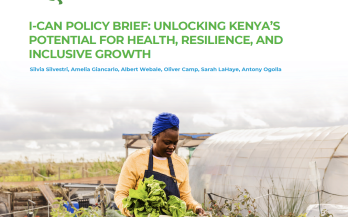
I-CAN Policy Brief: Unlocking Kenya’s Potential for Health, Resilience, and Inclusive Growth
- 06/02/2026
Climate change and malnutrition are deeply intertwined challenges in Kenya, where climate related shocks continue to threaten food systems, health services, and vulnerable populations. This policy brief summarizes f indings f rom a rapid assessment of 27 national policies and key stakeholder interviews, conducted to support the I-CAN initiative. The analysis reveals uneven climate–nutrition integration across sectors, with strong implementation f rameworks in some policies but persistent gaps in coordination, data systems, and f inancing. Overreliance on donor funding, limited engagement of diverse stakeholders, and underutilized governance structures further hinder progress. At the same time, there are clear opportunities to strengthen policy alignment, institutional reform, cross-sector collaboration, and stakeholder inclusion to build a more resilient and nutrition-secure Kenya.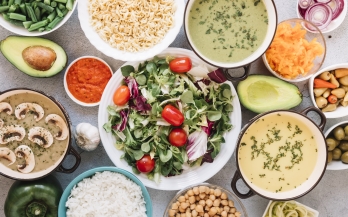
GAIN Joins the Global Alliance Against Hunger and Poverty
GAIN is pleased to announce its membership in the Global Alliance Against Hunger and Poverty (GAAHP) bringing on board a nutrition and food systems lens for global efforts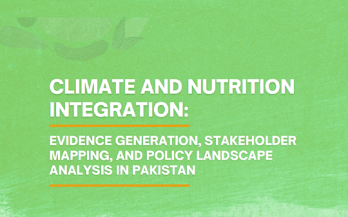
Climate and nutrition Integration: Evidence generation, stakeholder Mapping, and policy landscape Analysis in Pakistan
- 02/02/2026
Pakistan faces intertwined climate and malnutrition challenges, with floods, droughts, and rising temperatures threatening food security amid high child stunting (40.2%) and wasting (17.7%). Climate change is worsening nutrition outcomes, especially for women, children, and smallholder farmers, while climate and nutrition policies remain fragmented. GAIN’s I-CAN initiative aims to assess and strengthen the integration of climate and nutrition across Pakistan’s policies and strategies.